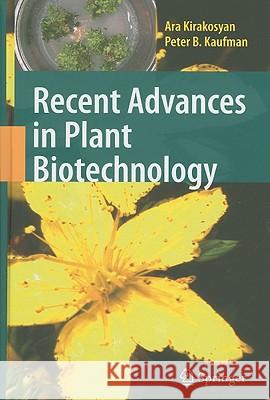Recent Advances in Plant Biotechnology » książka
Recent Advances in Plant Biotechnology
ISBN-13: 9781441901934 / Angielski / Twarda / 2009 / 405 str.
Plant biotechnology applies to three major areas of plants and their uses: (1) control of plant growth and development; (2) protection of plants against biotic and abiotic stresses; and (3) expansion of ways by which specialty foods, biochemicals, and pharmaceuticals are produced. The topic of recent advances in plant biotechnology is ripe for consideration because of the rapid developments in this ?eld that have revolutionized our concepts of sustainable food production, cost-effective alt- native energy strategies, environmental bioremediation, and production of pla- derived medicines through plant cell biotechnology. Many of the more traditional approaches to plant biotechnology are woefully out of date and even obsolete. Fresh approaches are therefore required. To this end, we have brought together a group of contributors who address the most recent advances in plant biotechnology and what they mean for human progress, and hopefully, a more sustainable future. Achievements today in plant biotechnology have already surpassed all previous expectations. These are based on promising accomplishments in the last several decades and the fact that plant biotechnology has emerged as an exciting area of research by creating unprecedented opportunities for the manipulation of biological systems. In connection with its recent advances, plant biotechnology now allows for the transfer of a greater variety of genetic information in a more precise, controlled manner. The potential for improving plant productivity and its proper use in agric- ture relies largely on newly developed DNA biotechnology and molecular markers.











